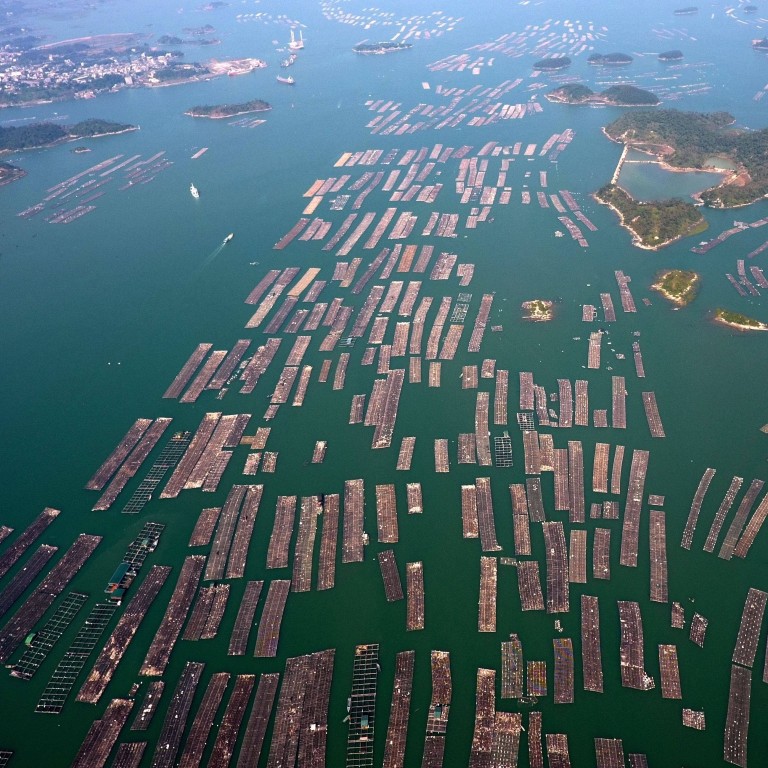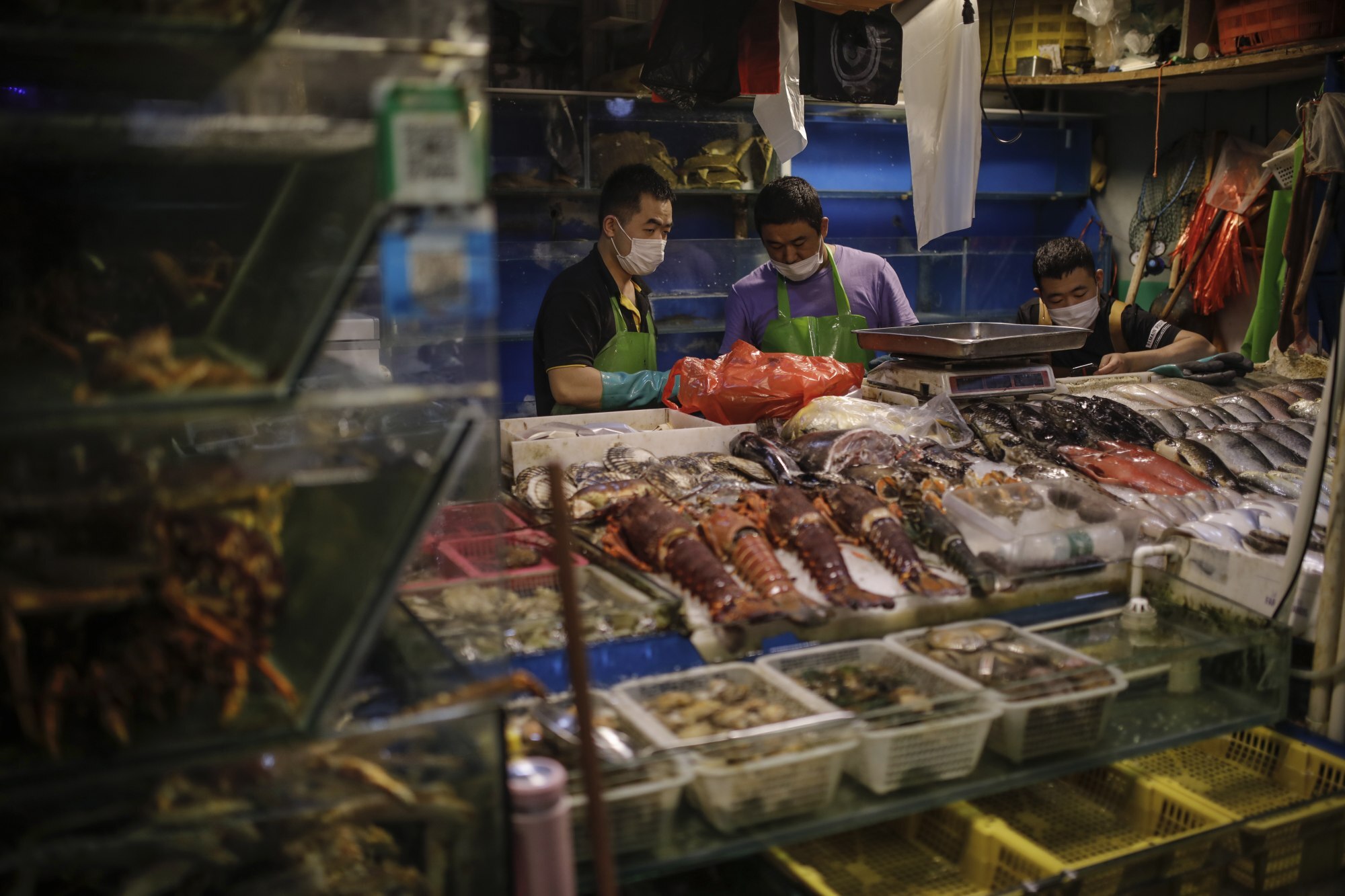
Overuse of antibiotics threatens China’s fish farms, scientists warn
- Researchers say the practice could damage the industry and increases the risk that drug-resistant superbugs will develop
- Use of drugs in overshore fish farms is subject to less stringent regulations than on land
Excessive use of antibiotics could ruin China’s booming seafood industry, a new study has warned.
China produces more than 80 per cent of the world’s mariculture products, but the seafood farms are responsible for dumping large quantities of antibiotics into the ocean - raising the risk that drug resistant superbugs will develop.
Data collected from many locations along China’s 32,000km coast line in recent years suggested that the antibiotics were building up at an alarming pace and were being found in fish and other forms of marine life.
Though most seafood remains safe at present, “the unregulated use of antibiotics has affected the development of our country’s mariculture industry and damaged the image of our aquatic products in the international market,” said the team led by Peking University professor Wen Donghui in a paper published in the journal Marine Environmental Science this month.
The use of antibiotics in off-shore farms is subject to less stringent regulations than on land because of the common belief that the huge body of ocean water can dilute the drugs/
But marine scientists have detected all kinds of antibiotics in thousands of off-shore water samples, according to Wen and colleagues.
China’s dam rush: critics query hydropower path to carbon neutrality
In waters near some farms in Guangdong and in the Bohai Sea, for instance, the concentration of antibiotics could reach more than 2 micrograms per litre of sea water. That was equivalent to dropping 20,000 penicillin pills into a standard swimming pool (250mg/pill).
“It is worth noting that prohibited antibiotics such as fulfathiaole, chloramphenicol and erythromycin were detected in the waters, indicating that the farmers may or may have used antibiotics in violation of regulations,” Wen wrote in the paper.
Antibiotics will not stay in the water forever and break down under sunlight or in warm currents. But the bad news is that some will sink to the bottom of the ocean and stay there for much longer periods.
There is strong evidence that antibiotics are increasing in sediment near Chinese shorelines, though the speed varies from location to location, and time to time, according to the study.
Most seafood samples examined by the scientists were safe, with antibiotic concentrations of less than 100 micrograms per kilogram of tissue, the national food safety standard.
But a few samples contained three times as many antibiotics as the safety limit. Though these antibiotics might not cause immediate harm, considering the estimated daily intake of seafood products by Chinese consumers, “the combined effect of different types of antibiotics remains poorly understood and requires further investigation,” said the researchers.

Excessive antibiotics use will eventually damage the marine farming business, the scientists warned. It could give rise to drug-resistant strains, or superbugs.
To suppress the spread of superbugs, the farmers will use more antibiotics, a vicious circle that will also increase production costs.
Chen Liangbiao,a professor of life sciences with Shanghai Ocean University who was not involved in the study, said that increasing antibiotics in the ocean could change the landscape of marine life.
The microorganisms living on the fish scale or in intestines, for instance, could undergo a change.
“What this can do to the fish, and how this will affect the marine ecology as a whole, still remains mostly beyond the reach of existing human knowledge,” he said.
The Chinese government has banned the use of most antibiotics in food production. Of the over 2,000 types of antibiotics in the market, less than a tenth are allowed to be used by fish farms.
But Chen Changfu, professor of fisheries with the Huazhong Agricultural University in Wuhan, said the ban could not solve the problem once and for all.
Antibiotics created superbug at poultry farms in China, study finds
As long as there were diseases, the farmers will try everything they can to save their fish, even if it involves using some banned antibiotics, he said.
One alternative, according to Chen, is biological agents such as microbes that could help cut the use of antibiotics.
The government should make microbiological agents a standard drug for fisheries and promote their large-scale application “as soon as possible,” he said.

